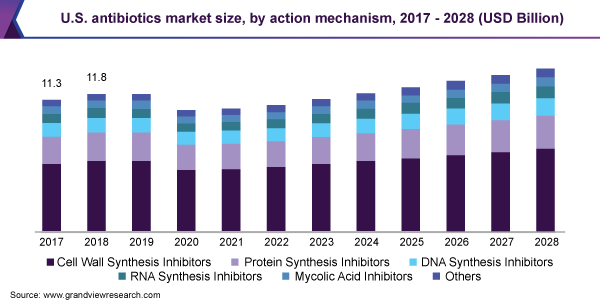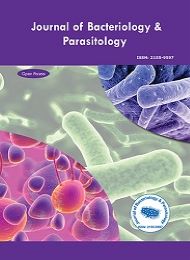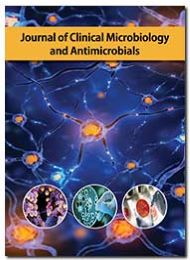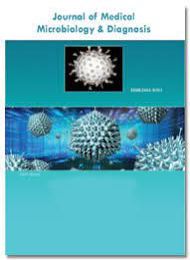Theme: Expanding New Horizons in Advances of Bacteriology & Antibiotics
Bacteriology 2022
- About Conference
- Session/Tracks
- Market Analysis
- Young Researchers Forum
- Past Conference
- Associated Societies & Companies
Bacteriology 2022 is going to welcome all the participants from all over the world to attain the Bacteriology & Antibiotics conference, which is going to be held in Zurich, Switzerland on October 24-25, 2022 based on the theme Expanding New Horizons in Advances of Bacteriology & Antibiotics. This gathering will give the whole concentration on existing and most recent developments in every aspect of Bacteriology & Antibiotics research. On behalf of all the Organizing Committee Members, we invite all the Bacteriology researchers & top microbiologists, industrialists, young scientists as well as student and corporate kings to join and to give a great success from different regions of Bacteriology & Antibiotics.
WHY TO ATTEND?
Bacteriology 2022 is aimed the World's leading Medical Conference. The two days event on the same will host many Scientific and technical sessions and sub-sessions on leading and latest research transformation related to the field of Bacteriology & Antibiotics, covering the globe. The attendees can find exclusive sessions and panel discussions on the latest innovations in Bacteriology & Antibiotics by:
- Best platform for international business and Networking opportunities
- Keynote forums by eminent Professors, Engineers
- Novel techniques to benefit your research and innovation
- Open Innovation Challenges
- Meet the editors of refereed journals, Society and Association members across the world
- Poster presentations by Young Researchers on Immunology
- Excellent platform to showcase the latest innovation and concept in the bacteriology field
- Lectures from prominent speakers
Target Audience:
- Bacteriologists
- Microbiologists
- Virologists
- Immunologists
- Physicians
- Rheumatologists
- Clinical Immunologists
- Biotechnologists
- Pulmonologists
- Pathologists
- Allergists
- Immunology professionals
- Paediatricians
- Various Societies and their members
- Research Scholars
- Institutes-Medical Schools Students
- University Professors
- Manufacturing Medical Devices Companies
- Laboratory technicians
- Business Entrepreneurs
- Companies producing vaccines, GMO’s and allergy therapeutics
Track 1: Bacteriology
Prokaryotes are classified in to two categories namely Archea and Bacteria. The difference between two ispeptidogly can layer and N-formyl methionine. The study of domain bacteria is known as Bacteriology. Bacteria which is not visible to the naked eye is found everywhere in the environment. Bacteriology includes bacteria classification, parasitology, epidemiology, infections caused by bacteria, exotoxins of gram-positive bacteria, endotoxins of gram-negative bacteria, genetics and ecology of bacteria. Over past decades Bacteriology research has advanced rapidly.
Recommended: Vaccine Immunology Conference | Vaccine Conferences | Immunology Conferences | Vaccine and Immunology Conferences | Clinical Immunology Conferences | Advanced Immunology Conferences | Vaccine Conferences 2022 | Immunology Conferences 2022 | Veterinary Vaccine Conferences
Track 2: Bacterial Biochemistry
A Few Biochemical/Physiological Properties Used for identification of bacteria include: nutrient utilization (carbohydrate utilization, amino acid degradation, lipid degradation), resistance to inhibitory substances (high salt, antibiotics, etc.), enzyme production (catalase, coagulase, hemolysins, etc.) and motility. Biochemical tests are used to identify bacterial species by differentiating them on the basis of biochemical activities. The difference in protein and fat metabolism, carbohydrate metabolism, enzyme production, compound utilization ability, etc. are some factors that aid in bacterial identification.
Recommended: Vaccine Immunology Conference | Vaccine Conferences | Immunology Conferences | Vaccine and Immunology Conferences | Clinical Immunology Conferences | Advanced Immunology Conferences | Vaccine Conferences 2022 | Immunology Conferences 2022 | Veterinary Vaccine Conferences
Track 3: Bacterial Genomics
Currently, bacterial sequencing has a profound impact on the field of genomics. Based on the short gun sequencing approach the sequences of Lepto spirilum, H. influenza is available on biological databases. This deals with hereditary information about bacteria, theta replication, transcription Genome information assists in Linkage mapping and genetic mapping. Genomics of bacteria also includes phenomenon like Pleiotropy, epistasis. Colonization of bacteria is based on Virulence factors, currently, genome editing tools like CRISPR/Cas were available for genome sequencing of bacteria.
Recommended: Vaccine Immunology Conference | Vaccine Conferences | Immunology Conferences | Vaccine and Immunology Conferences | Clinical Immunology Conferences | Advanced Immunology Conferences | Vaccine Conferences 2022 | Immunology Conferences 2022 | Veterinary Vaccine Conferences
Track 4: Bacteriology in Public Health
Public Health microbiology may be a speciality which spans the fields of human, animal, food, water and environmental microbiology, with attention on human health and disease. Public Health microbiology supports the monitoring of known and developing pressures and facilitates the calculation of effective interventions. Public Health Microbiology may be a highly interdisciplinary field that features anyone committed the microorganisms and infectious diseases that impact human health. it's an enormous area comprised of researchers, physicians, laboratorians, epidemiologists, environmental scientists, veterinarians, biostatisticians, and too more specialists to call. This breadth of specialties is important because public health microbiology encompasses every aspect of communicable disease in humans, from diagnosis and treatment to prevention and protection. This also implies that fields like Clinical Microbiology, Food Microbiology, Water Microbiology and Environmental Microbiology exist entirely or partially within the scope of Public Health Microbiology.
Recommended: Vaccine Immunology Conference | Vaccine Conferences | Immunology Conferences | Vaccine and Immunology Conferences | Clinical Immunology Conferences | Advanced Immunology Conferences | Vaccine Conferences 2022 | Immunology Conferences 2022 | Veterinary Vaccine Conferences
Track 5: Bacterial Vaccine
Bacterial vaccines contain killed or attenuated bacteria that activate the immune system. Antibodies are built against that particular bacteria, and prevents bacterial infection later. An example of a bacterial vaccine is the Tuberculosis vaccine.
Types of Bacterial Vaccines.
Recommended: Vaccine Immunology Conference | Vaccine Conferences | Immunology Conferences | Vaccine and Immunology Conferences | Clinical Immunology Conferences | Advanced Immunology Conferences | Vaccine Conferences 2022 | Immunology Conferences 2022 | Veterinary Vaccine Conferences
Track 6: Bacterial Infections
A bacterial infection is a proliferation of a harmful strain of bacteria on or inside the body. Bacteria can infect any area of the body. Pneumonia, meningitis, and food poisoning are just a few illnesses that may be caused by harmful bacteria. Bacteria are single-celled microorganisms. They’re very diverse, coming in a variety of different shapes and sizes. Bacteria can be found in all sorts of environments, including soil, bodies of water, and in or on our bodies. Some can survive extreme temperatures or even radiation exposure Trusted Source. However, sometimes bacteria can enter our bodies and cause an infection. Some examples of bacterial infections include: Strep throat, syphilis, tuberculosis, whooping cough, Cholera, botulism, tetanus, anthrax.
Recommended: Vaccine Immunology Conference | Vaccine Conferences | Immunology Conferences | Vaccine and Immunology Conferences | Clinical Immunology Conferences | Advanced Immunology Conferences | Vaccine Conferences 2022 | Immunology Conferences 2022 | Veterinary Vaccine Conferences
Track 7: Food bacteriology
It is a combination of many topics like food preservation, food spoilage, molecular food, fermented food technology, brewing microbiology. Bacteria metabolism shows the impact on food odour, colour, taste, pH changes, slime layer formation. In addition to pathogenic bacteria, there are beneficial bacteria which boosts up an immune system like Probiotics, Prebiotics. Intake of adequate amounts of probiotic food confers good health. Probiotic bacteria include Lactobacillus, Bifidobacterium boosts the immune system.
Recommended: Vaccine Immunology Conference | Vaccine Conferences | Immunology Conferences | Vaccine and Immunology Conferences | Clinical Immunology Conferences | Advanced Immunology Conferences | Vaccine Conferences 2022 | Immunology Conferences 2022 | Veterinary Vaccine Conferences
Track 8: Bacterial Pathogens and Associated Diseases
Pathogenic bacteria are bacteria that can cause disease. This session focuses on the bacteria that are pathogenic to humans. Most species of bacteria are harmless and are often beneficial but others can cause infectious diseases. The number of these pathogenic species in humans is estimated to be fewer than a hundred. Bacteria cause many common infections such as pneumonia, wound infections, bloodstream infections (sepsis) and sexually transmitted diseases like gonorrhea, and have also been responsible for several major disease epidemics.
Recommended: Vaccine Immunology Conference | Vaccine Conferences | Immunology Conferences | Vaccine and Immunology Conferences | Clinical Immunology Conferences | Advanced Immunology Conferences | Vaccine Conferences 2022 | Immunology Conferences 2022 | Veterinary Vaccine Conferences
Track 9: Clinical Bacteriology
The primary mission of the clinical bacteriology laboratory is to assist the health care provider in the diagnosis of infectious diseases. Due to the variety of specimens submitted to the bacteriology laboratory, many of the steps related to the processing and workup of a specimen have remained manual. The specimen is inoculated onto an agar medium (with plating protocols typically driven by the source of the specimen), the plates transferred manually to an incubator, the plates removed after a defined period of time and the culture examined by a technologist to look for potential pathogens. The cost of healthcare in many countries and the Affordable Care Act in the United States are collectively driving institutions to explore new and novel ways to provide continuous, quality care in a more affordable, efficient fashion. One of those options to enhance efficiency and affordability is automation.
Recommended: Vaccine Immunology Conference | Vaccine Conferences | Immunology Conferences | Vaccine and Immunology Conferences | Clinical Immunology Conferences | Advanced Immunology Conferences | Vaccine Conferences 2022 | Immunology Conferences 2022 | Veterinary Vaccine Conferences
Track 10: Microbiology
Microbiology is the study of microscopic organisms, such as bacteria, viruses, archaea, fungi and protozoa. This discipline includes fundamental research on the biochemistry, physiology, cell biology, ecology, evolution and clinical aspects of microorganisms, including the host response to these agents. Microbiologists study microbes, and some of the most important discoveries that have underpinned modern society have resulted from the research of famous microbiologists, such as Jenner and his vaccine against smallpox, Fleming and the discovery of penicillin, Marshall and the identification of the link between Helicobacter pylori infection and stomach ulcers, and zur Hausen, who identified the link between papilloma virus and cervical cancer.
Recommended: Vaccine Immunology Conference | Vaccine Conferences | Immunology Conferences | Vaccine and Immunology Conferences | Clinical Immunology Conferences | Advanced Immunology Conferences | Vaccine Conferences 2022 | Immunology Conferences 2022 | Veterinary Vaccine Conferences
Track 11: Antibiotics
Antibiotics are chemicals that kill or inhibit the growth of bacteria and are used to treat bacterial infections. They are produced in nature by soil bacteria and fungi. This gives the microbe an advantage when competing for food and water and other limited resources in a particular habitat, as the antibiotic kills off their competition. Antibiotics take advantage of the difference between the structure of the bacterial cell and the host’s cell. They can prevent the bacterial cells from multiplying so that the bacterial population remains the same, allowing the host’s defence mechanism to fight the infection or kill the bacteria, for example stopping the mechanism responsible for building their cell walls. An antibiotic can also be classified according to the range of pathogens against which it is effective. Penicillin G will destroy only a few species of bacteria and is known as a narrow spectrum antibiotic. Tetracycline is effective against a wide range of organisms and is known as a broad spectrum antibiotic.
Recommended: Vaccine Immunology Conference | Vaccine Conferences | Immunology Conferences | Vaccine and Immunology Conferences | Clinical Immunology Conferences | Advanced Immunology Conferences | Vaccine Conferences 2022 | Immunology Conferences 2022 | Veterinary Vaccine Conferences
Track 12: Antibiotic Resistance
Bacteria are termed drug-resistant when they are no longer inhibited by an antibiotic to which they were previously sensitive. The emergence and spread of antibacterial-resistant bacteria has continued to grow due to both the over-use and misuse of antibiotics. Treating a patient with antibiotics causes the microbes to adapt or die; this is known as ‘selective pressure’. If a strain of a bacterial species acquires resistance to an antibiotic, it will survive the treatment. As the bacterial cell with acquired resistance multiplies, this resistance is passed on to its offspring. In ideal conditions some bacterial cells can divide every 20 minutes; therefore after only 8 hours in excess of 16 million bacterial cells carrying resistance to that antibiotic could exist.
Recommended: Vaccine Immunology Conference | Vaccine Conferences | Immunology Conferences | Vaccine and Immunology Conferences | Clinical Immunology Conferences | Advanced Immunology Conferences | Vaccine Conferences 2022 | Immunology Conferences 2022 | Veterinary Vaccine Conferences
Track 13: Bacteria and Disease
A few harmful microbes, for example less than 1% of bacteria, can invade our body (the host) and make us ill. Microbes cause infectious diseases such as flu and measles. There is also strong evidence that microbes may contribute to many non–infectious chronic diseases such as some forms of cancer and coronary heart disease. Different diseases are caused by different types of micro-organisms. Microbes that cause disease are called pathogens.
Recommended: Vaccine Immunology Conference | Vaccine Conferences | Immunology Conferences | Vaccine and Immunology Conferences | Clinical Immunology Conferences | Advanced Immunology Conferences | Vaccine Conferences 2022 | Immunology Conferences 2022 | Veterinary Vaccine Conferences
Track 14: Antibiotic Resistance and Microbiology
Medical microbiologists are pathologists who diagnose and treat infectious diseases. They study pathogens: organisms that cause disease, such as viruses, fungi or bacteria. Microbiologists perform tests to find out which antibiotics will be most useful in stopping an infection. Different bacteria are sensitive to different antibiotics, so pathologists ensure the correct antibiotic is prescribed. Microbiologists also play an important role in infection control, preventing infection passing from one patient to another in hospitals and the community. Many of the most common infections are caused by viruses and bacteria. Viral diseases include: common cold, influenza, hepatitis B and HIV/AIDS. Bacterial diseases include: tuberculosis, salmonella (food poisoning), tetanus and chlamydia.
Recommended: Vaccine Immunology Conference | Vaccine Conferences | Immunology Conferences | Vaccine and Immunology Conferences | Clinical Immunology Conferences | Advanced Immunology Conferences | Vaccine Conferences 2022 | Immunology Conferences 2022 | Veterinary Vaccine Conferences
Track 15: Synthetic Biology
It deals with many disciplines such as Genetics, Molecular Biology, Genetic Engineering. Synthetic biology laid down the path for making of biosensors, synthetic DNA, synthetic transcription factors, bio-computers, industrial enzymes, mass spectrometry. It concerns about design and construction of components like genetic circuits, metabolic pathways etc. Metabolic profiling, Large-scale integration, quantitative and integrative proteomics is designed based on the systems biology.
Recommended: Vaccine Immunology Conference | Vaccine Conferences | Immunology Conferences | Vaccine and Immunology Conferences | Clinical Immunology Conferences | Advanced Immunology Conferences | Vaccine Conferences 2022 | Immunology Conferences 2022 | Veterinary Vaccine Conferences
Track 16: Novel Antibiotics
Antibiotics are those which act against the growth of infectious organisms. Antimicrobials, antibacterial fall under this. Antibacterial may be either bacteriostat or bacteriocidal. Bacteriostat is those which inactivates the organism and retards the growth whereas bactericidal completely kills the organism. Antibiotics which acts on the specific bacterial group were named as narrow spectrum and those which shows activity against two groups i.e. positive and negative bacteria are named as broad-spectrum antibiotics.
Recommended: Vaccine Immunology Conference | Vaccine Conferences | Immunology Conferences | Vaccine and Immunology Conferences | Clinical Immunology Conferences | Advanced Immunology Conferences | Vaccine Conferences 2022 | Immunology Conferences 2022 | Veterinary Vaccine Conferences
Track 17: Industrial and Applied Microbiology
Bacteria are used to produce organic acids, amino acids, industrial enzymes, amino glycosides ,beta-lactam antibiotics. In diary industry, brewing industry bacteria helps to fermentation. Bacteria produce secondary metabolites during the stationary growth phase which have great potential in industries.
Recommended: Vaccine Immunology Conference | Vaccine Conferences | Immunology Conferences | Vaccine and Immunology Conferences | Clinical Immunology Conferences | Advanced Immunology Conferences | Vaccine Conferences 2022 | Immunology Conferences 2022 | Veterinary Vaccine Conferences
Track 18: Phyto-Bacteriology
It deals with pathogens that effects the plants, plant-bacteria interactions, bio fertilizers. Some bacteria fix nitrogen to the root nodules. Agrobacterium tumefaciens is used as a natural genetic tool to insert the plasmid. Phyto bacteriology focuses mainly on taxonomy and pathogenicity factors. Recent research on phyto bacteriology includes the antagonistic activity of microorganism against bacterial infections, intracellular bacteria liberobacter, nucleation of bacteria in the active bundles of plants, nonparasitic rhizobacterium.
Recommended: Vaccine Immunology Conference | Vaccine Conferences | Immunology Conferences | Vaccine and Immunology Conferences | Clinical Immunology Conferences | Advanced Immunology Conferences | Vaccine Conferences 2022 | Immunology Conferences 2022 | Veterinary Vaccine Conferences
Track 19: Infections and Immunity
Immunity is of two types namely innate and adaptive immunity. Humans immune system produces micro-inflammation against host invading body. Immunogenetics deals with the study of the interrelation of autoimmune disorders, infectious diseases. Based on previous studies on skin infections it has been found that bacteria is cause for hypersensitivity reactions. The effect of the pathogen on host depends upon the virulence factors. Bacteria acts as an antigen to the human immune system and bacterial peptides undergo exocytosis get attached to MHC-II.
Recommended: Vaccine Immunology Conference | Vaccine Conferences | Immunology Conferences | Vaccine and Immunology Conferences | Clinical Immunology Conferences | Advanced Immunology Conferences | Vaccine Conferences 2022 | Immunology Conferences 2022 | Veterinary Vaccine Conferences
Track 20: Epidemiology in Public Health
Epidemiology is that the foundation of public health and is defined because the study of the “distribution and determinants” of diseases or disorders within groups of individuals, and therefore the development of data on the way to prevent and control them.
For many people, the COVID-19 pandemic was the primary time they’ve been exposed to the concept of an uncontrolled disease—introducing phrases like “transmission,” “incubation period,” “contact tracing,” and “herd immunity” into the general public vernacular.
Except for those within the field of epidemiology, these ideas are at the core of their careers, and a pestilence is precisely what they’ve been preparing for. Epidemiologists have historically performed vital work to safeguard and improve the health of populations, whether it's neighborhoods, cities, countries, or continents. Epidemiologists are crucial in mapping and understanding the consequences of the coronavirus, but their work extends beyond novel viruses and pandemics.
Recommended: Vaccine Immunology Conference | Vaccine Conferences | Immunology Conferences | Vaccine and Immunology Conferences | Clinical Immunology Conferences | Advanced Immunology Conferences | Vaccine Conferences 2022 | Immunology Conferences 2022 | Veterinary Vaccine Conferences
The global antibiotics market size was valued at USD 40.7 billion in 2020 and is expected to expand at a compound annual growth rate (CAGR) of 4.5% from 2021 to 2028. The rising prevalence of infectious diseases and supportive government legislation are the major drivers of the market. Moreover, an increase in antibiotic resistance infections due to misuse or overuse of antibiotics is expected to shift the prescription patterns to novel therapies to treat bacterial infection. According to the CDC, the incidence of antibiotic-resistant infections is more than 2.8 million in the U.S. The pathogens such as Enterobacteriaceae, P. aeruginosa, and K. pneumoniae have a high resistance rate of an average of 40% in developed countries.
The increased efforts of pharmaceutical companies for the development of novel therapies to treat infectious diseases are expected to drive the market over the forecast period. According to Pew Charitable Trust, in December 2019, around 41 promising molecules were being investigated for the treatment of serious bacterial infections. Out of these 41 investigational drugs, 17 are in the third phase of the clinical trials or have filed NDA for approval and are expected to be commercialized during the forecast period. In the second half of 2019, four new antibiotic drugs have received U.S. FDA approval. Furthermore, supportive government legislation such as the GAIN Act and REVAMP Act is anticipated to expedite the approval process globally. The launch of new antibiotic drugs is expected to support the growth of the market over the forecast period.

The demand for antibiotics is significantly increasing owing to the increasing incidence of infectious diseases. The high prevalence of infectious diseases, such as lower respiratory infections, pneumonia, malaria, and tuberculosis, is also fueling the market growth. Increasing disease burden is compelling government and non-government bodies to invest in R&D initiatives and boost the development of novel antibiotics and supportive regulatory policies to expedite the approval process and research funding. For instance, BARDA in alliance with the government has extended its support to several companies to aid the development process of new therapies for infectious diseases.
The collaborations for the development of antibiotics are expected to lead to the development of a high number of antibiotic drugs in the foreseeable future. Pharmaceutical companies are collaborating for the development of new therapies to reduce the cost burden of the drug development process. For instance, in July 2019, Nosopharm announced the partnership with Evotec AG for the development of NOSO-502. It is a first-in-class novel antibiotic against Enterobacteriaceae infections. Furthermore, in April 2019, Forge Therapeutics, Inc. and Basilea Pharmaceutica Ltd. announced a research collaboration and license agreement to develop novel antibiotics.
Moreover, the increasing number of public-private collaborations, wherein funding and innovative R&D approaches are provided by public agencies to firms developing antibiotics, is expected to boost the product pipeline. For instance, in March 2019, the Global Antibiotic Research and Development Partnership (GARDP) announced a public-private partnership with Evotec AG for the development of first-in-class antibiotics for treating drug-resistant bacterial infections.
Microbiology Conference Committee is intended to honour prestigious award for talented Young researchers, scientists, Young Investigators, Post-Graduate students, Post-doctoral fellows, Trainees, Junior faculty in recognition of their outstanding contribution towards the conference theme. The Young Scientist Awards make every effort in providing a strong professional development opportunity for early career academicians by meeting experts to exchange and share their experiences on all aspects of Microbiology.
Young Research’s Awards at Bacteriology 2022 for the Nomination: Young Researcher Forum - Outstanding Masters/Ph.D./Post Doctorate thesis work Presentation, only 25 presentations acceptable at the Bacteriology 2022 young research forum.
Benefits
- Young Scientist Award recongination certificate and memento to the winners.
- Our conferences provide best Platform for your research through oral presentations.
- Learn about career improvement with all the latest technologies by networking.
- Young Scientists will get appropriate and timely information by this Forum.
- Platform for collaboration among young researchers for better development.
- Provide an opportunity for research interaction and established senior investigators across the globe in the field.
- Share the ideas with both eminent researchers and mentors.
- It’s a great privilege for young researchers to learn about the research areas for expanding their research knowledge.
-
Eligibility
- Young Investigators, Post-Graduate students, Post-doctoral fellows, Trainees, Junior faculty with a minimum of 5 years of research experience
- Presentation must be into scientific sessions of the conference.
- Each Young Researcher / Young Scientist can submit only one paper (as first author or co-author).
- Age limit-Under 35yrs
- All submissions must be in English.
Past Conference Report: Bacteriology 2021
Thanks to all our wonderful speakers, conference attendees, and Sponsors, Bacteriology 2021 Conference was our best!
“6th International Conference on Bacteriology” hosted by the Conference series Group were held during July 12-13, 2021 in the Barcelona, Spain with the theme “Advances and Challenges in Bacteriology”. Benevolent response and active participation were received from the Editorial Board Members of Conference series Journals as well as from the Scientists, Doctors, Professors, Microbiologists, Pharmaceutical Industries, Researchers and Students from the fields of Microbiology.
The meeting was carried out through various sessions, in which the discussions were held on the following major scientific tracks:
Bacterial Pathogens and Associated Diseases
Bacterial Diagnosis and Identification Methods
Industrial Microbiology, Microbial Biotechnology and Future Bio industries
Applied & Environmental Science
Medical Bacteriology and Immunology
The conference was initiated with a series of lectures delivered by both Honorable Guests and members of the Keynote forum. The list included:
Menachem Shoham,Case Western Reserve University, USA
Richard G. Brennan,Duke University School of Medicine, USA
Brigitte Lamy,Montpellier University, France
Paul Jeffrey Freidlin,The National Public Health Laboratory, Israel
Joanna S. Brook,DePaul University, USA
Robert J. Maier,University of Georgia, USA
B.Y.Chin,Sun way University, Malaysia
Nermin H. Ibrahim,King Saud University, Saudi Arabia
Nadia Izadi Pruneyre, Institut Pasteur, France
Ilaria Ferlenghi,Novartis Vaccines Research Centre, Italy
With the grand success of 6th International Conference on Bacteriology, Conference Series is proud to announce the "9th International Conference & Exhibition on Bacteriology & Antibiotics” scheduled on October 24-25, 2022 at Zurich, Switzerland.
For more information please visit: https://bacteriology.conferenceseries.com/
Socities :
1. American society for Micro Biology
2. Society for General Micro Biology
3. Swiss Society for Micro Biology
4. Society for applied Microbiology
5. International Union of Microbiological societies
6. Federation of European Microbiological Societies
Companies :
• Gilead Sciences, Inc.
• Amgen, Inc.
• Celgene Corporation
• Biogen Idec, Inc.
• Regeneron Pharmaceuticals, Inc.
• Alexion Pharmaceuticals, Inc.
• Vertex Pharmaceuticals, Inc.
• Illumina, Inc.
• BioMarin Pharmaceutical, Inc.
• Agilent Technologies, Inc.
Conference Highlights
- Bacteriology
- Bacterial Biochemistry
- Bacterial Genomics
- Bacteriology in Public Health
- Bacterial Vaccine
- Bacterial Infections
- Food bacteriology
- Bacterial Pathogens and Associated Diseases
- Clinical Bacteriology
- Microbiology
- Antibiotics
- Antibiotic Resistance
- Bacteria and Disease
- Antibiotic Resistance and Microbiology
- Synthetic Biology
- Novel Antibiotics
- Industrial and Applied Microbiology
- Phyto-Bacteriology
- Infections and Immunity
- Epidemiology in Public Health
To share your views and research, please click here to register for the Conference.
To Collaborate Scientific Professionals around the World
| Conference Date | October 24-25, 2022 | ||
| Sponsors & Exhibitors |
|
||
| Speaker Opportunity Closed | |||
| Poster Opportunity Closed | Click Here to View | ||
Useful Links
Special Issues
All accepted abstracts will be published in respective Our International Journals.
- Journal of Bacteriology & Parasitology
- Journal of Clinical Microbiology and Antimicrobials
- Annals of Infections and Antibiotics
Abstracts will be provided with Digital Object Identifier by







